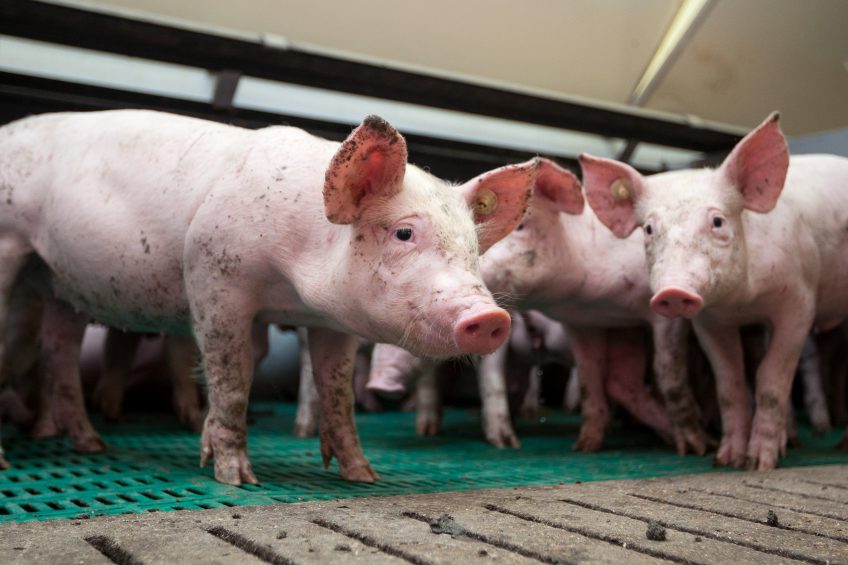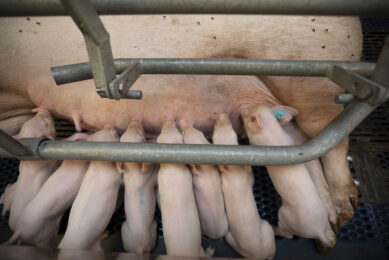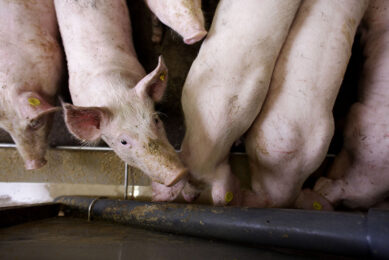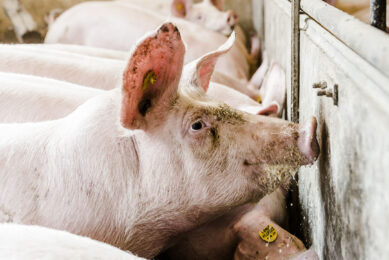Better encapsulated phytogenics improves feed efficiency

Limited digestibility is a well-known problem for many pig producers all around the world. A problem that feed additives might be able to address. A novel phytogenic has been introduced which is not only aimed at improved feed intake, but also better performance and optimised feed conversion.
The key to addressing many of the current challenges facing the industry is better feed efficiency. Feed conversion improvement is tied to a host of modern production issues, including profitability, improving the limited digestibility of alternative feed ingredients, reducing antibiotics, counteracting stressors, and overcoming environmental challenges. In further confirming its pivotal role, 1,140 industry respondents in 100 countries indicated that enhanced feed efficiency or a better feed conversion ratio (FCR) was the most important potential benefit of phytogenic feed additives (PFAs) to their operation, as captured by the Biomin 2017 Phytogenic Feed Additives Survey.
And at Biomin, improving feed efficiency has been the main thrust of its research and product development around phytogenics in recent years. The company has built upon the Digestarom product line, which dates back to 1989, and recently introduced a new phytogenic, called Digestarom DC, which is designed to deliver improved feed intake, better performance and optimised feed conversion.
What’s new?
The new phytogenic is based on a special encapsulation technology for essential oils and phytogenic active compounds: the Biomin Duplex Capsule (hereafter called ‘the capsule’), which combines 2 encapsulation techniques:
- matrix and
- core-shell encapsulation.
It offers 4 key advantages:
- Better thermostability;
- Continuous delivery of active substances;
- Targeted, controlled release; and
- Better handling.

Better thermostability
Essential oils and their active compounds in particular are highly volatile and heat sensitive – less than ideal characteristics in the context of modern feed production and pelleting. The capsule gives the phytogenic enhanced pelleting stability over 90°C, as shown by the amount of product recovered after conditioning in a cascade mixer with steam addition, followed by pelleting for another 20-30 seconds (Figure 1).
Figure 1 – Recovery of active compounds.


Continuous delivery
The new technology results in double capsules with a uniform and narrow size distribution ranging from 120 to 500 µm, allowing for more homogeneous distribution of active compounds in the phytogenic and in the feed, resulting in continuous delivery of active substances in the animals.

Targeted, controlled release
With core-shell encapsulation, a protective coat surrounds a core comprising essential oils and active compounds. In the phytogenic, the coat and the core contain different essential oils for appetising and gut modulation modules. Both layers are matrix encapsulated, meaning that the active compounds are finely dispersed in a solidified matrix, providing a targeted, controlled release along the gastrointestinal tract. The particles in the phytogenic have a very high essential oil content compared to other commercially available products. Figure 2 illustrates how the capsule permits the targeted delivery of essential oils in an in vitro gastro-intestinal model.
Figure 2 – Release of essential oil** actives.


Better handling
Thanks to the capsule, the phytogenic has a shelf life of 18 months, reduced dustiness and improved handling. While certain commercially available phytogenic feed additives have a high dusting potential of up to 20 g/m³ according to the Stauber-Heubach test, an acknowledged and official method for testing dusting potential, the corresponding value for the novel phytogenic is 1.6-2.4 g/m³.
Triple action formulation
The triple action formulation of the phytogenic exploits the advantages of the Biomin Duplex Capsule to optimise feed conversion. The 3 modules are formulated to optimise feed conversion:
• Appetising and endogenous secretions;
• Gut microbiota modulation;
• Gut protection.
Trial results
Recent results of 4 consecutive trials in piglets demonstrate the ability of the new phytogenic to improve performance. The trials were conducted with a total of 351 weaned piglets, (Landrace x Large White) x Piétrain. The animals were held in 2 identical, climate controlled, slatted floor houses.
Piglets fed the phytogenic supplemented diets over 42 days showed a statistically significant improvement in average daily weight gain (567.53 g) versus piglets fed the control diet (550.44 g). Similarly, a difference was observed in the feed conversion ratio (FCR) of the two groups: 1.78 for the control versus 1.76 for the phytogenic group.
Overall, supplementation of feed with Digestarom DC resulted, compared to the control, in a significant increase of average daily feed intake compared to the control (998.10 g vs. 978.52 g, respectively), a significant increase in weight gain (+3.1%) and a decrease in FCR. The efficiency gains translate into direct economic benefits for the producers.











